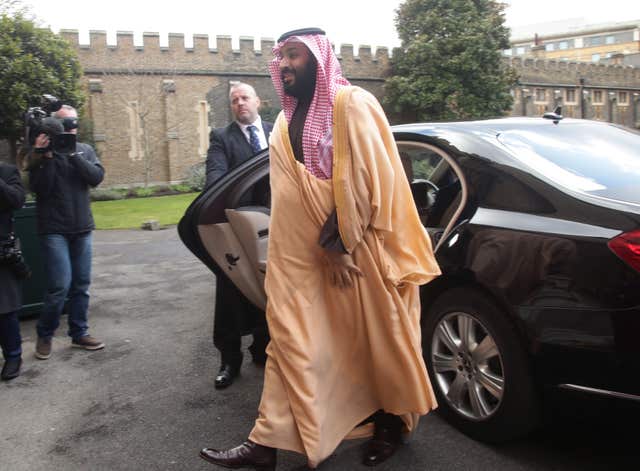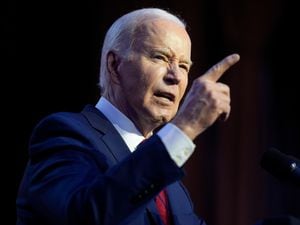Saudi Arabia ‘recruited Twitter workers to spy on critics’
A complaint unsealed in a US District Court detailed a co-ordinated effort by Saudi government officials to recruit Twitter employees.

Saudi Arabia recruited two Twitter employees to gather information on thousands of accounts that included prominent opponents, US prosecutors have alleged.
The complaint unsealed in the US District Court in San Francisco detailed a co-ordinated effort by Saudi government officials to recruit employees at the social media giant to look up the private data of Twitter accounts.
This included email addresses linked to the accounts and internet protocol addresses that can provide a user’s location.
The accounts included those of a popular critic of the government with more than a million followers and a news personality. Neither was named.
The complaint also alleged the employees – whose jobs did not require access to Twitter users’ private information – were rewarded with a designer watch and tens of thousands of dollars funnelled into secret bank accounts.
Ahmad Abouammo, a US citizen, and Ali Alzabarah, a Saudi citizen, were charged with acting as agents of Saudi Arabia without registering with the US government.
The Saudi government had no immediate comment through its embassy in Washington.
The complaint marks the first time the kingdom, long linked to the US through its massive oil reserves and regional security arrangements, has been accused of spying in America.
The allegations against two former Twitter employees and a third man who ran a social media marketing company that worked for the Saudi royal family comes a little more than a year after the murder of Jamal Khashoggi.
The Washington Post columnist and prominent critic of the Saudi government was killed and dismembered in the Saudi consulate in Istanbul.
Saudi Arabia under King Salman and his son, 34-year-old Crown Prince Mohammed bin Salman, have aggressively silenced and detained government critics even as it allows women to drive and opens cinemas in the conservative kingdom.
Prince Mohammed also has been implicated by US officials and a United Nations investigative report in the assassination of Mr Khashoggi. The prince has said he bore ultimate responsibility for the kingdom, but denies orchestrating the murder.

The criminal allegations reveal the extent of the Saudi government’s control of the flow of information on Twitter, said Adam Coogle, a Middle East researcher with Human Rights Watch.
The platform is the main place for Saudis to express their views, and about a third of the nation’s 30 million people are active users, but Twitter is a major source of concern for the authoritarian regime, Mr Coogle said.
The government has used troll armies to harass and intimidate users online and has arrested and imprisoned Twitter users.
The crown prince’s former top adviser, Saud al-Qahtani, who also served as director of the cyber security federation, started the “Black List” hashtag to target critics of the government. He ominously tweeted in 2017 that the government had ways of unmasking anonymous Twitter users.
“If you combine that with what we know about at least these two individuals and what went on in 2014 and into 2015, it’s pretty chilling,” Mr Coogle said.
Mr al-Qahtani has been sanctioned for his suspected role in orchestrating the killing of Mr Khashoggi. His Twitter account was suspended in September for violating its platform manipulation policy.
Twitter acknowledged that it co-operated in the criminal investigation and said in a statement that it restricts access to sensitive account information “to a limited group of trained and vetted employees”.
“We understand the incredible risks faced by many who use Twitter to share their perspectives with the world and to hold those in power accountable,” the statement said.
“We have tools in place to protect their privacy and their ability to do their vital work.”





